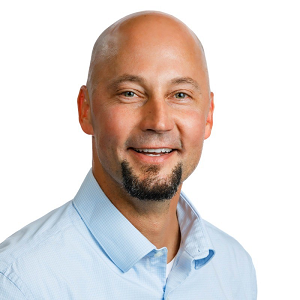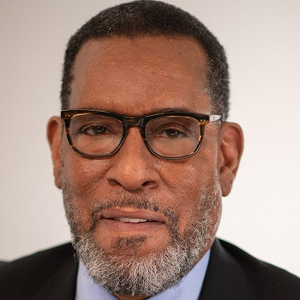Women in the United States earn approximately 82 cents for every $1 earned by men, according to Pew Research Center. That discrepancy has held steady for two decades and has pushed many credit unions to create better solutions for historically underserved communities.
Helping women to build financial security is a strategic focus for Summit Credit Union ($6.9B, Cottage Grove, WI). For years, the cooperative has offered financial education, training, and support for male and female consumers and small business owners. But in November 2023, Summit partnered with the startup StartingBlock to launch Fellowship for Women Entrepreneurs, a one-year program that provides mentorship, workspace, workshops, and training for female business owners.
The Right Fit, Right In Summit’s Backyard
The fellowship aligns with Summit’s mission and financial education offerings that help retail and commercial members in areas such as wealth management, home loans, and financial security.
Through conversations with StartingBlock, a startup hub for Madison-area entrepreneurs, Summit learned about the hub’s desire to create a curriculum specifically for women entrepreneurs. From there, both organizations worked together to launch the program.
“We saw a strong parallel between the fellowship and a program called Project Money that we offer on our consumer side,” says Ric Mathias, chief services officer at Summit. “Through that program, we help families build credit, decrease debt and increase savings in a 12-month period.”
How It Works
StartingBlock created a foundational curriculum for all fellows, and Summit acts as an additional resource to help business owners move from ideation to action.
“We act as a sounding board based on where their business is,” Mathias says.

During the program, fellows learn about how to scale and grow their businesses. However, because participants are at different stages of the business cycle, the support they receive from their mentors is highly customized.
“We mold our support to each entrepreneur,” says Vincent Rice, vice president of community and business impact at Summit. “Mentors from the credit union include marketing, operations, learning and development, and more. It’s all predicated on that entrepreneur’s current needs.”
Rice, who leads the initiative for the credit union, meets with StartingBlock monthly. Mentors attend quarterly sessions with their mentees to ensure they remain aligned with the core curriculum. These formal meetings usually include a lunch to engage all parties and encourage conversations.
“We don’t want to inundate the fellows with too much information or force things,” Rice says. “How mentors and fellows communicate in between meetings is driven by those quarterly interactions.”

The credit union also wants to make sure mentors are providing sound advice that doesn’t supersede StartingBlock guidance or unnecessarily narrow the scope of conversations.
“As a business owner, you might get multiple recommendations as you wrestle with certain decisions,” Rice says. “Ultimately, it’s up to the fellow to take in as much insight and feedback as they can and make the best decision for their business.”
So far, mentors — who take on the volunteer responsibility in addition to their day job — report fellows are appreciative of the advice they are receiving.
Still, the needs of a fellow might necessitate the credit union nudge its leaders with specific skillsets who might not yet have raised their hand to volunteer. To that end, Summit is focusing on ensuring mentors have a strong understanding about what they need to bring to the table. For example, the cooperative will be developing FAQs to help mentors and fellows alike better understand the boundaries of the relationship and the level of support the credit union can provide.
A Fellow’s Perspective
The Business Impact
“I’ve made really great connections with other business owners in the program and the leaders, Scott and Leslie. I’ve been able to meet the Summit execs and have sparked ideas of social collaborations that I’m working through right now. I’m hopeful a collaboration with my business and Summit will happen soon!”
Credit Union Relationship
“I just bought a house, and it was an easy decision to go with Summit after learning about how they operate and meeting the people that run the ship. I’ve become a dedicated Summiter for life!”
Why Summit for Your Business?
“Initially it was a recommendation from another business friend, but once I met with Dana, she made me feel at home and welcomed. I felt like my business mattered in her eyes and I didn’t feel brushed off because of my age (25 at the time). She made me feel like she was going through the process with me and wanted me to succeed.”
Success Measures And Impact
Currently, seven women entrepreneurs are participating in the program. StartingBlock is tracking the number of training sessions they complete, other startup hub events in which fellows participate, and the overall engagement level of participants.
CU QUICK FACTS
SUMMIT CREDIT UNION
DATA AS OF 12.31.23
HQ: Cottage Grove, WI
ASSETS: $6.9B
MEMBERS: 257,368
BRANCHES: 52
EMPLOYEES: 878
NET WORTH:9.6%
ROA: 0.78%
Summit plans to measure the program’s success in a few different ways, including how it’s helping the credit union reach its target market. Specific metrics will include improvements in the lifetime earnings and savings of women, the number of businesses starting up within the community, the success and growth of fellows moving beyond the program, and future commercial lending or business services opportunities.
One of the fellows is already a Summit Credit Union member with a loan, and Mathias and Rice expect the credit union will have more opportunities to serve commercial lending and other business needs down the road.
According to the Summit leaders, programs like this help cooperatives get closer to those they serve and identify hurdles they encounter. The feedback from the fellows will enable Summit to ensure it has the right educational resources, tools, and product solutions to help all its members succeed.
For startups, the sheer number of resources available to them can be overwhelming. Summit’s goal is to help them figure out where to start, which resources to use when, and how to build on the core curriculum StartingBlock has developed.
“Programs like these are powerful examples of putting strategy and tactics into real-life scenarios,” Mathias says. “As a parallel example, serving on the consumer side as a Project Money coach was one of the most rewarding experiences I’ve had.”
Best Practices
Rice advises others interested in creating a similar program to be clear about expectations from the beginning.
“Things can get unwieldy if you try to do everything for everyone,” he says.
That applies to not only mentors and mentees but also the larger partnerships, such as between the credit union and StartingBlock. Clearly defining the program’s scope, desired outcome, and the roles and responsibilities of all parties helps ensure everyone is living up to expectations and maximizing the value of the program.